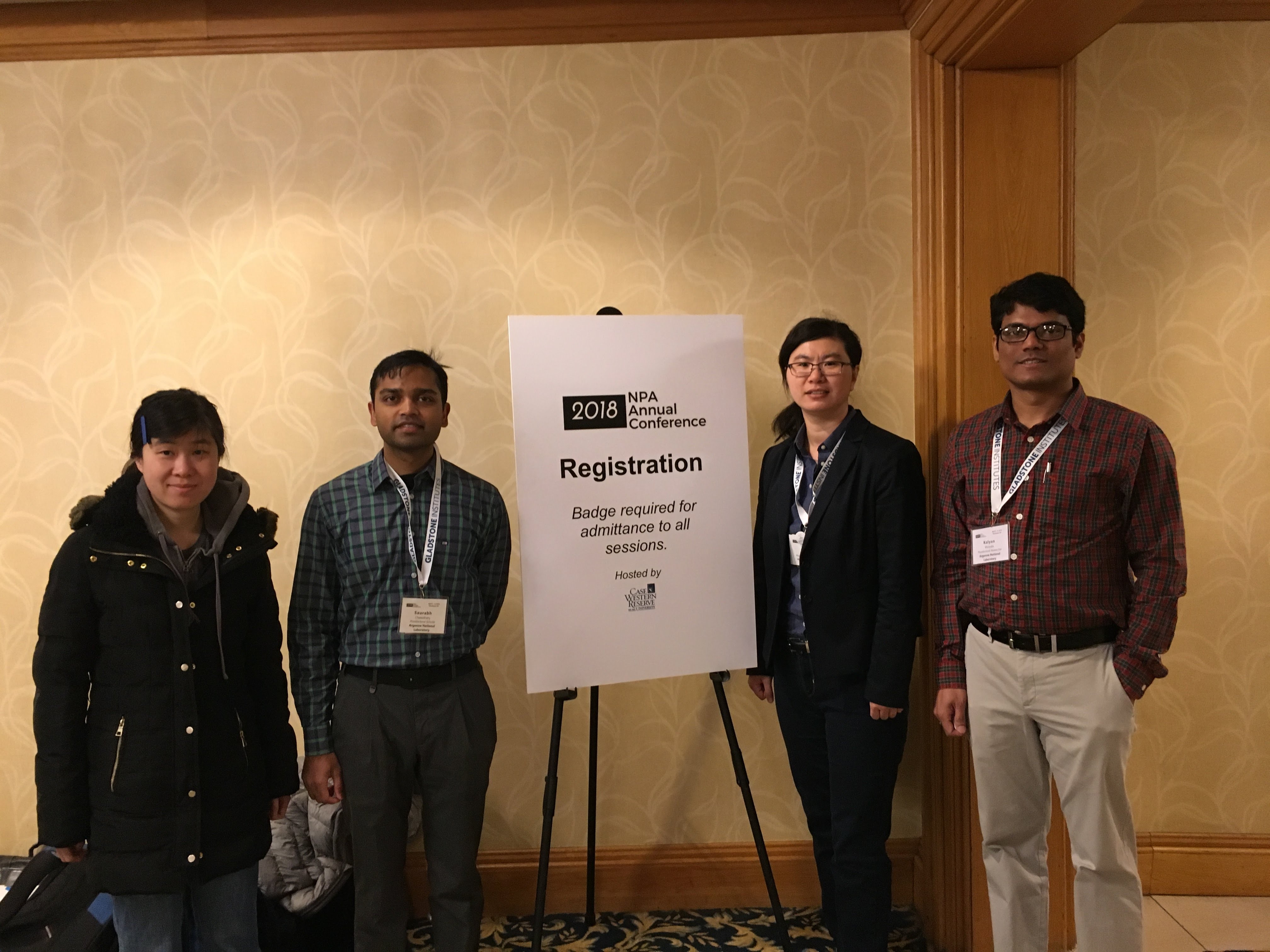
Lu Ma (XSD), Saurabh Chawdhary (MCS), Li Tang (AMD) and Kalyan Mutyala (NST) at the 2018 NPA Conference in Cleveland, OH
This past April, four Postdoctoral Appointees from across the Lab attended the 2018 National Postdoctoral Association Conference. This yearly event brings together postdocs, postdoctoral program administrators and leaders invested in postdoctoral development to learn the latest in issues that impact postdocs and share ideas to help postdocs achieve career success. We asked each of the Argonne attendees to share what they learned from the conference with the broader Argonne community. This week, Lu Ma (XSD) talks about knowing yourself as a key step in advancing your career and important issues that postdocs face during periods of transition.
Question and Answer with Lu Ma
What sessions/topics of workshops did you attend?
I attended the following sessions:
- Getting involved in National Associations and how it can help you and your institute
- Transitioning from the bench to institutional leadership through mentoring and shared governance in higher education
- Marketing yourself online
- A data-driving approach to understanding U.S. postdocs
- Think beyond your skill set and identify your unique value
- Becoming the boss of your career
What was the greatest benefit of attending the meeting?
I learned professional skills, talked to different people with different backgrounds and know better about the national association at the meeting. Most of the postdocs who attended the meeting were from the biomedical or cancer research area, which were different from most of the postdocs at Argonne. It’s really a nice experience to talk to them and share different perspectives. Argonne has a very good postdoc society, which provides a lot of opportunities for learning the skills for future career development.
What are some lessons you learned from the workshops that would be beneficial for your fellow postdocs?
The most impressive session for skill development for me at the meeting was the “think beyond your skill set and identify your unique value” session. During this session, the speaker taught a professional method that can help people to identify your unique personality and also how to explain that in an efficient way during the interview. That’s not only a skill that helps you prepare for the interview, but also a good method to know better about yourself.
What are the concerns or issues faced by postdocs at other organizations?
In some universities or institutes, there is no postdoc office there. The postdocs share the same offices for the graduate and undergraduate students. Especially for the international postdocs, the visa is different from the students, but they don’t know who should contact about it and the officers for the students were not family with it.
Did you learn of a program that we should consider starting here?
Yes. Some of the postdoc offices also provide the psychological (counseling) service to help the people to reduce stress and anxiety. The Postdoc period is a transition step, which means that postdocs face more challenges. I think we need a similar program to provide some advice on the stress relief.
Postdoc Program note–Argonne postdocs, see this week’s PSA Newsletter for resources at the Lab relevant to stress management! Thanks, Lu, for sharing what you learned!

